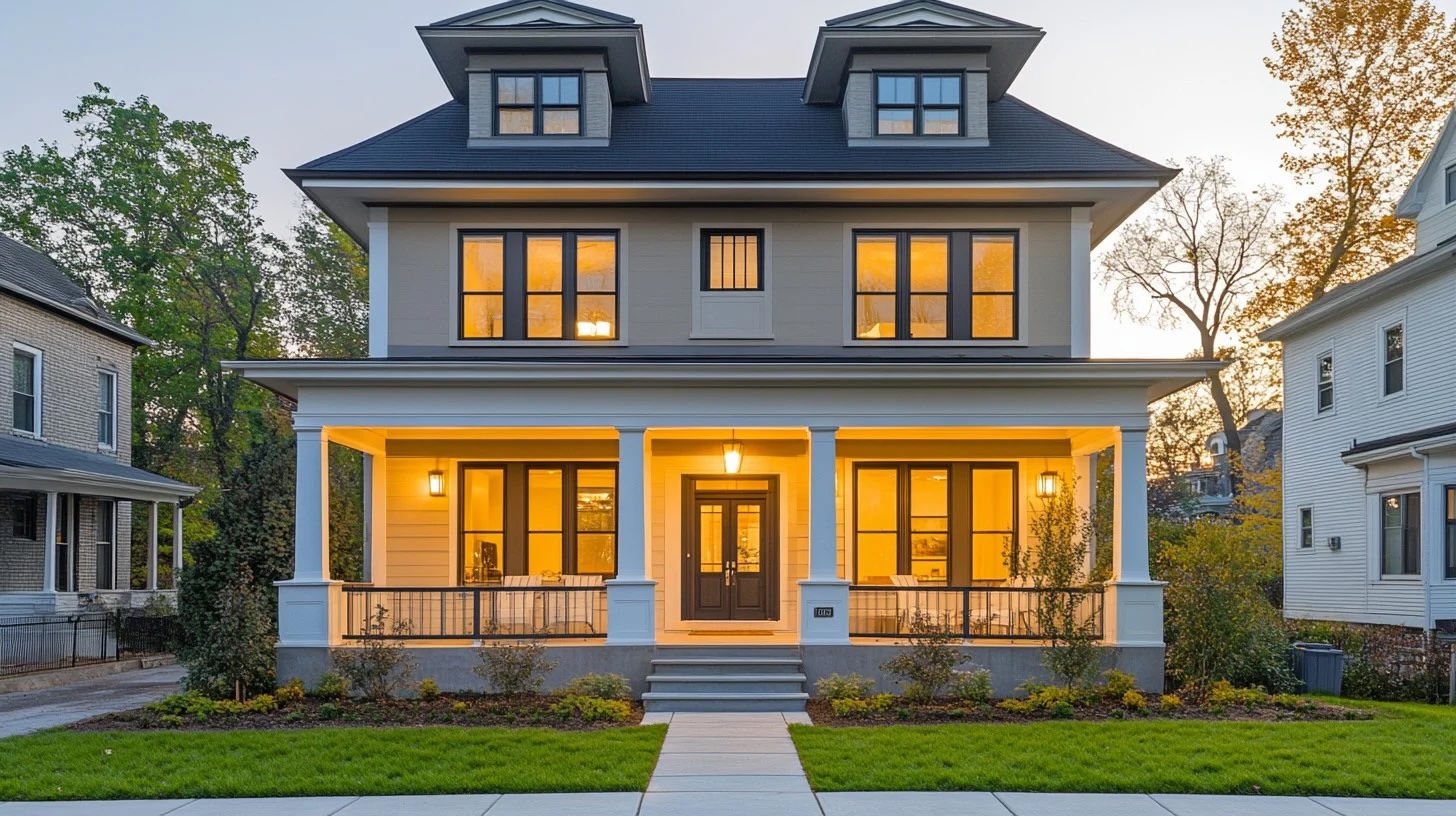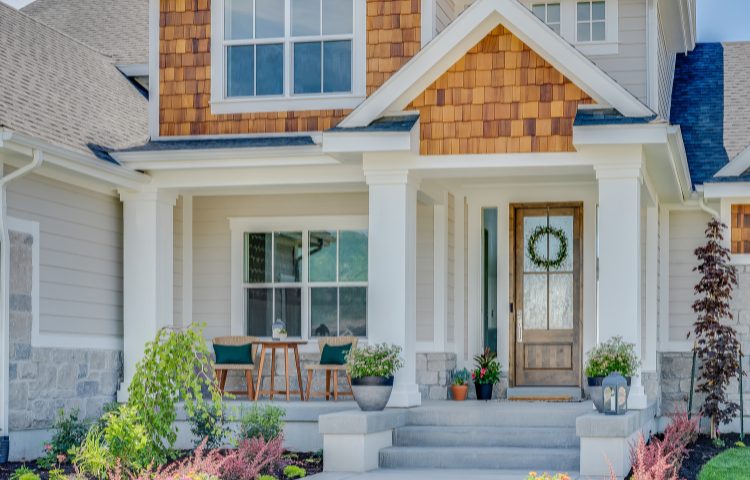What Is My Home’s Value in Camp Hill, PA?

If you’ve been wondering, “What is my home’s value in Camp Hill, PA?”, you’re not alone. Many homeowners keep a close eye on their property’s worth, whether they’re thinking about selling, refinancing, or simply curious about how their investment is performing. Knowing your home’s value gives you the power to make smart decisions about your financial future.
Why Knowing Your Home Value Matters
Your home is more than a place to live; it’s often your largest financial asset. By understanding its current value, you can:
- Decide if it’s the right time to list your home for sale.
- Use your equity for home improvements, debt consolidation, or other investments.
- Compare your home to others in Camp Hill to see how it stacks up.
- Plan for future moves with confidence.
Even if you’re not planning to sell soon, staying informed about your property’s value helps you stay ahead in today’s competitive real estate market.
How a Real Estate Appraisal Works
A real estate appraisal is a professional, unbiased estimate of your property’s worth. Appraisers consider a wide range of factors, including:
- Property details – square footage, age, condition, and updates.
- Comparable sales – prices of similar homes recently sold in Camp Hill.
- Neighborhood value – proximity to schools, parks, shops, and commuting routes.
- Market trends – current supply and demand across Cumberland County.
This process ensures that your home’s value is grounded in facts and market realities, rather than guesswork.
What Impacts Home Value in Camp Hill, PA?
While every property is unique, a few key factors consistently influence home values in our area:
- Location: Homes near top-rated schools, desirable neighborhoods, or local amenities often sell for more.
- Condition: Well-maintained homes with modern updates can command higher prices.
- Upgrades: Renovated kitchens, bathrooms, and energy-efficient systems add measurable value.
- Market conditions: When demand in Camp Hill is strong, values rise faster.
- Comparable homes: The recent sales of similar homes in your neighborhood help set realistic expectations.
How Realtors® at Century 21 Realty Services Determine Your Home’s Value
While online calculators may give you a rough estimate, nothing compares to the insight of a local real estate professional. At Century 21 Realty Services, our Realtors® take a personalized, hands-on approach to help you understand your home’s true value.
Here’s how we do it:
- In-depth market analysis: We review current listings, pending sales, and recently sold homes in Camp Hill.
- On-site evaluation: Your Realtor® looks at your home’s condition, features, and upgrades firsthand.
- Local expertise: Our team has decades of combined experience in Cumberland County, giving us unmatched knowledge of neighborhood trends.
- Customized recommendations: Beyond just giving you a number, we’ll explain what factors affect your value and how you might increase it before selling.
The goal isn’t just to give you a price tag; it’s to empower you with knowledge so you can make the best decision for your future.
Why Choose Century 21 Realty Services?
When it comes to selling your home in Camp Hill, choosing the right Realtor® makes all the difference.
- Has a proven track record of successful sales in Camp Hill and the surrounding communities.
- Uses advanced marketing strategies to showcase your home to the right buyers.
- Provides honest, data-driven guidance so you know exactly where your home stands in the market.
- Works closely with you every step of the way, from valuation to closing.
We don’t just provide a number; we give you the confidence to move forward with your plans.
Ready to Learn Your Home’s Value in Camp Hill, PA?
If you’re curious about your home value in Camp Hill, PA, now is the perfect time to connect with a trusted professional.
Contact Century 21 Realty Services today to schedule a personalized home valuation or a professional real estate appraisal. Our team will provide expert guidance, accurate pricing, and a strategy tailored to your goals.
How to Sell Your House Fast in Camp Hill, PA

If you’re looking to sell your house fast in Camp Hill, PA, it’s important to have a solid game plan that helps your listing stand out in a competitive real estate market. Whether you’re relocating for work, downsizing, or making a lifestyle change, selling quickly doesn’t mean cutting corners. In fact, a faster sale often comes down to strategy, timing, and knowing your local market.
In this guide, we’ll walk you through the essential steps to sell your Camp Hill home fast, from pricing it right to marketing it effectively.
Why Camp Hill, PA Is a Desirable Market
Before listing your home, it helps to understand Camp Hill real estate trends. Camp Hill is one of the most desirable places to live in Central Pennsylvania due to its excellent school district, strong community feel, and close proximity to Harrisburg.
Because of this, homes often move quickly, but only if priced and marketed correctly. Local buyers are often looking for move-in-ready properties in good neighborhoods, so it’s important to highlight what makes your home and location stand out.
Step 1: Price to Sell, Not Just to List
One of the most effective ways to sell your house fast in Camp Hill, PA, is by setting the right price from day one. Overpricing can cause your home to sit on the market too long, while underpricing might leave money on the table.
An experienced Camp Hill real estate agent will run a comparative market analysis (CMA) to evaluate:
- Recent sales of similar homes in your neighborhood
- Average days on market
- Seasonal demand trends
Correct pricing attracts serious buyers and can even lead to multiple offers, speeding up your timeline.
Step 2: Prepare Your Home for a Fast Sale in Camp Hill
You don’t need to do a full renovation, but small upgrades and thoughtful staging can make a big impact. To sell your home fast in Camp Hill, focus on:
- Decluttering and deep cleaning
- Adding fresh paint in neutral colors
- Making minor repairs (leaky faucets, loose doorknobs, etc.)
- Boosting curb appeal with landscaping and exterior touches
Buyers want to visualize themselves in your space, so aim to present a clean, welcoming, and move-in-ready home.
Step 3: Leverage Local Real Estate Marketing
Marketing is where many homes either stand out or get lost. To sell your house fast in Camp Hill, you need more than just a For Sale sign.
At Century 21 Realty Services, we offer full-scale marketing that includes:
- Professional photography and virtual tours
- MLS and syndicated listings
- Google and social media advertising
- Email marketing to local buyer lists
- Open houses and private showings
By targeting Camp Hill home buyers both online and locally, we maximize visibility and interest early in your listing period.
Step 4: Work With a Camp Hill Real Estate Expert
A knowledgeable local agent can make all the difference when it comes to a fast and profitable sale. Our agents at Century 21 Realty Services are experts in the Camp Hill real estate market and know how to:
- Market your home effectively
- Handle showings and negotiations
- Identify motivated buyers
- Guide you through paperwork and closing timelines
If you’re serious about selling quickly, you need someone who understands both your goals and the local market.
What to Avoid If You Want to Sell Quickly
Even in a hot market, certain mistakes can slow down your home sale. To avoid delays:
- Don’t ignore needed repairs or updates
- Don’t overprice based on emotion
- Don’t use low-quality photos in your listing
- Don’t delay responding to buyer interest or offers
Being prepared, responsive, and realistic are key to moving fast.
Ready to Sell Your House Fast in Camp Hill, PA?
Selling your home doesn’t have to be stressful or drawn out. With the right preparation, pricing strategy, and marketing support, you can sell your Camp Hill home fast and move on to what’s next.
At Century 21 Realty Services, we’re here to guide you every step of the way.
Contact us today for a free home valuation and personalized plan to sell your house fast in Camp Hill, PA.
Why Summer Is a Great Time to Sell Your Home

Timing Can Make All the Difference
Thinking about selling your home? Summer might just be the perfect season to make your move. Longer days, warmer weather, and motivated buyers all create the ideal conditions to attract attention and strong offers.
At Century 21 Realty Services, we know the local real estate market in Central PA inside and out. Here’s why summer consistently delivers results for sellers.
More Buyers, More Activity
Summer is the prime home buying season. Many buyers aim to move during the summer to avoid disrupting school schedules or to take advantage of job relocations. That means more people are actively looking, and more foot traffic at showings and open houses.
With increased buyer demand, your home is more likely to attract interest quickly and potentially sell for top dollar.
Your Home Looks Its Best in Summer
Curb appeal matters. Bright flowers, green lawns, and longer daylight hours all help your home shine. Natural light highlights your interior during showings and makes listing photos more attractive.
A well maintained exterior can make a powerful first impression and summer gives you the best canvas to work with.
Flexible Schedules Mean More Showings
Longer days = more availability.
Buyers often have more flexibility in their schedules during the summer, especially in the evenings and on weekends. That means more opportunities for showings, and ultimately, more chances to connect with the right buyer.
You’re Selling Into a Competitive Market
Buyers don’t want to miss out. In a hot summer market, buyers may feel pressure to act fast, especially if they’ve already lost out on other properties. That can lead to stronger offers and smoother negotiations.
Selling This Summer? Let’s Get Started.
If you’re thinking about selling your home in Camp Hill, Harrisburg, Mechanicsburg, or the surrounding areas, our experienced team is here to help you take full advantage of the season.
We’ll help you:
- Price your home competitively
- Stage it for summer showings
- Create an attention grabbing marketing plan
- Connect with serious buyers quickly
Make Your Move with Confidence
Selling a home is a major decision but the timing doesn’t have to be difficult. Summer offers a natural advantage, and with the support of Century 21 Realty Services, you’ll have the tools, team, and strategy to make it a success.
Ready to list your home this summer? Contact us today or get a free home valuation.
Recognizing Excellence: Meet Our May 2025 Centurion Team

At Century 21 Realty Services, we pride ourselves on fostering a culture of excellence, integrity, and client centered service. Each month, we recognize a select group of agents who go above and beyond in delivering results and supporting their clients with unmatched professionalism. These agents represent the best of our team, and in May 2025, we are proud to introduce our Centurion Team.
This monthly honor is awarded based on total sales volume and reflects a combination of market expertise, consistent communication, negotiation skills, and a relentless commitment to client success.
#1 in Volume: Jon Judson
Jon Judson leads the pack this month with the highest volume of closed sales. Known for his strategic insight and unwavering professionalism, Jon consistently earns the trust of both buyers and sellers across Central Pennsylvania. His ability to navigate complex transactions while staying grounded in his clients’ goals is what sets him apart in today’s market.
Contact: 717.580.4839 | c21judson@gmail.com
#2 in Volume: Diane Collier
Diane Collier brings years of experience and an incredible work ethic to every transaction she touches. Whether assisting first time homebuyers or seasoned investors, Diane’s thoughtful guidance and attention to detail ensure smooth, successful outcomes. Her recognition as the second highest volume producer is a testament to the trust she builds with each client.
Contact: 717.303.8990 | diane.collier.century21@gmail.com
#3 in Volume: Sarah Staub
Sarah Staub’s reputation for client care and consistent follow through makes her a standout in any market. Her personalized service, clear communication, and strong local knowledge help her clients feel confident at every step. Securing the third spot in volume this month, Sarah continues to raise the bar.
Contact: 717.329.7961 | sarahannstaub@gmail.com
#4 in Volume: Molly Moore
Molly Moore is a trusted advisor to her clients and a valued member of the Century 21 Realty Services team. With a sharp eye for detail and a calm, solution focused mindset, Molly guides her clients through even the most challenging transactions. Her presence on this month’s Centurion Team reflects her continued excellence and dedication.
Contact: 717.576.2344 | molly.moore@century21rs.com
Honoring Our Agents and Their Impact
These four agents represent what Century 21 Realty Services stands for: a commitment to service, deep market expertise, and a results driven approach that makes a difference in the lives of our clients. Their success is a reflection of the work ethic, collaboration, and client first values that define our entire office.
Please join us in celebrating Jon, Diane, Sarah, and Molly for their outstanding performance in May. Whether you’re buying, selling, or exploring your options, you can count on the agents at Century 21 Realty Services to deliver exceptional results.


 Facebook
Facebook
 X
X
 Pinterest
Pinterest
 Copy Link
Copy Link







